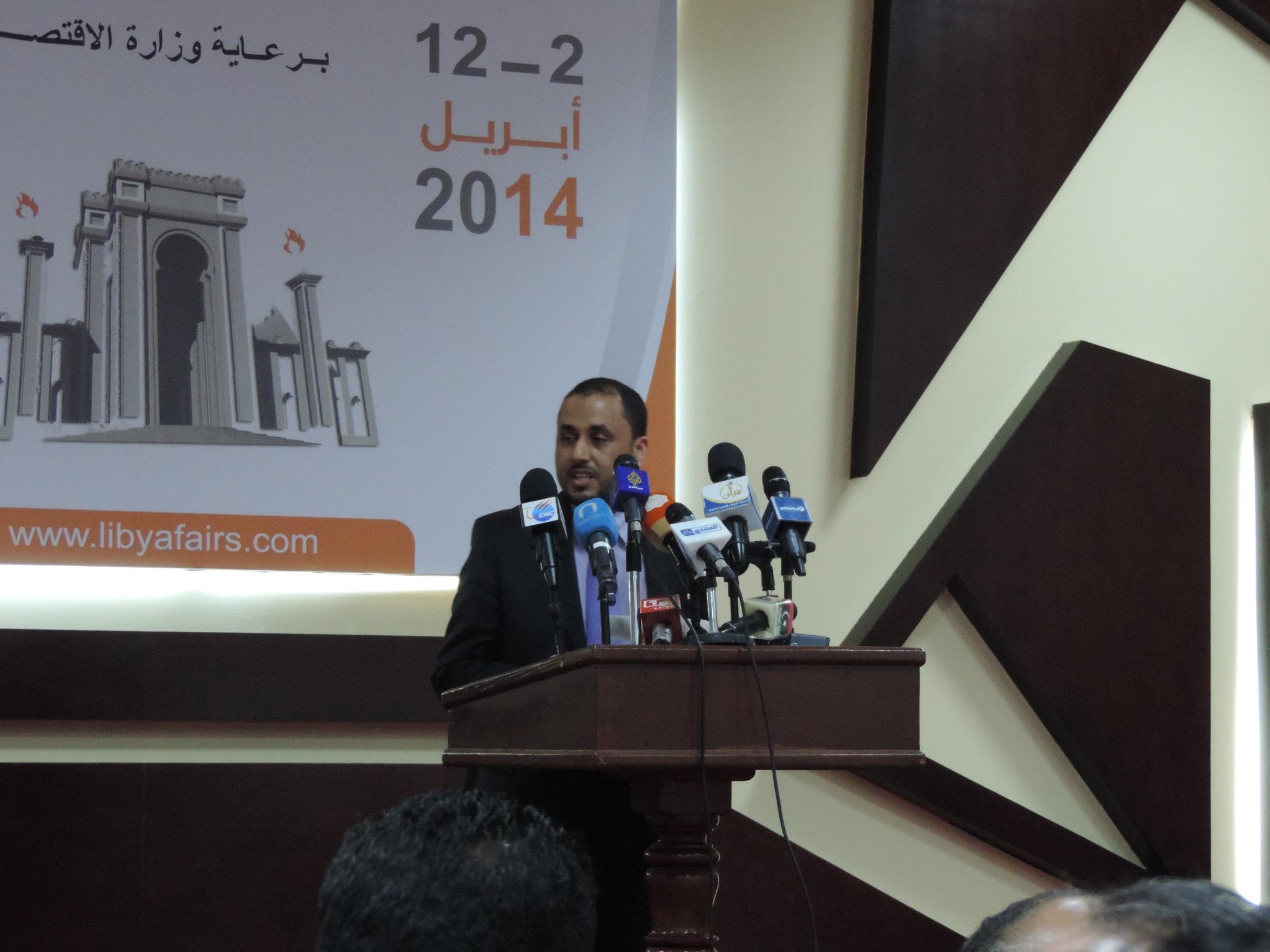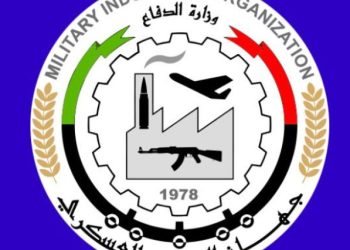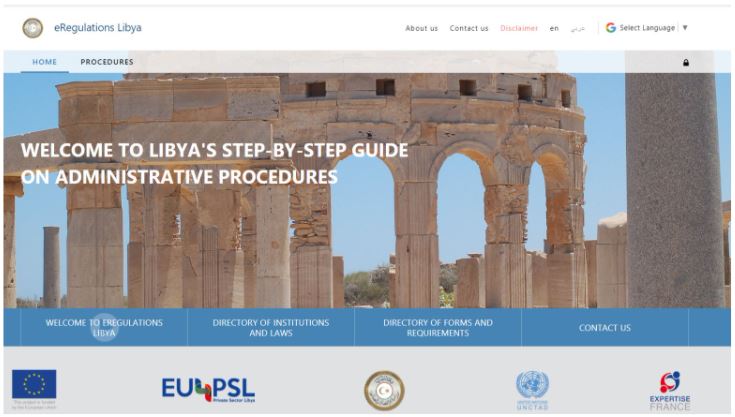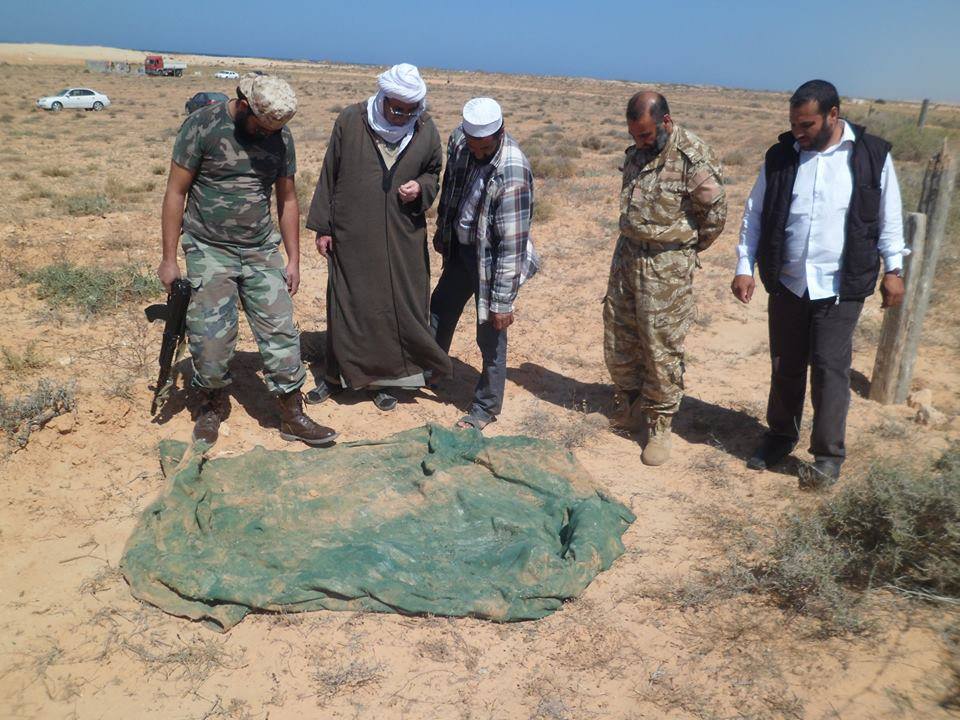By Sami Zaptia.
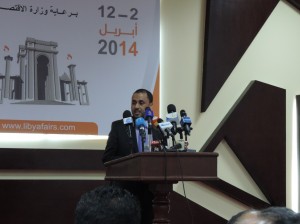
Tripoli, 3 April 2014:
About three hundred VIPs including diplomats, politicians, business leaders and exhibitors attended yesterday’s official opening of . . .[restrict]the 42nd Tripoli International Fair. Over 650 local and international companies are participating.
The guests of honour were headed by Salah Makhzoum, the Second Deputy head of the GNC, Deputy Prime Minister Abdussalam Al-Gadi, Acting Deputy Minister of Economy Suhail Abushiha and Tripoli Local Council head Sadat Elbadri.
Salaheddin Hamza, head of Libyan Board of Fairs, part of the Ministry of Economy, welcomed the packed Omar Mukhtar conference centre to the Tripoli International Fair and promptly announced that Libya had registered its intention to participate in the Expo 2015 in Milan where more than 50 states had already registered. He called on the government to facilitate and complete the procedure for the registration so that Libya could play it role at the Expo.
Acting Deputy Minister of Economy Suher Abushaiba said that the Tripoli International Fair was “one of the oldest fairs in Africa and the Arab world, opening doors for the exchange of experiences, culture, as well as products and goods”.
Tripoli Local Council head Sadat Badri, in his welcoming remarks, admitted that the fair was “opening at a time of political and legal instability in the country”, but he was “hopeful for the future”. He congratulated the Board of Fairs for continuing the tradition of the fair and thanked the hundreds of companies for participating. Referring to the historic roots of the fair back in the Italian colonialist days in the 1030’s, Badri also thanked Libya’s forefathers for continuing with the fair and providing a foundation for today’s fair.
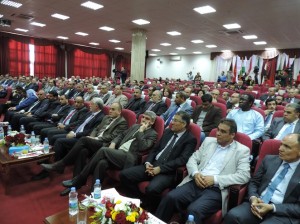
The Tripoli Local Council leader also emphasised that the fair is an important step towards economic diversification of Libya’s GDP away from hydrocarbons, a diversification deemed imperative by the World Bank and IMF, if Libya’s economy is to create jobs and move beyond the export of hydrocarbons.
The Second Deputy of the GNC, Salah Makhzoum, for his part noted that it was not expected that Libya would make such economic achievements only two years after the 17 February revolution had declared victory. These achievements, he explained, came about despite all the difficulties that a revolution brings to the affairs of a state.
“The Libyan public is working hard to move forward despite a 42-year legacy. Today we push forward for a free market, competitive economy”. Makhzoum admitted that in Libya today, “problems exist”, highlighting the widespread weapons in the country. But despite this he insisted that efforts to move forward continue.
“We are optimistic that as soon as projects resume and youth return to work, Libya will move forward”, he concluded to the gathered audience. [/restrict]
